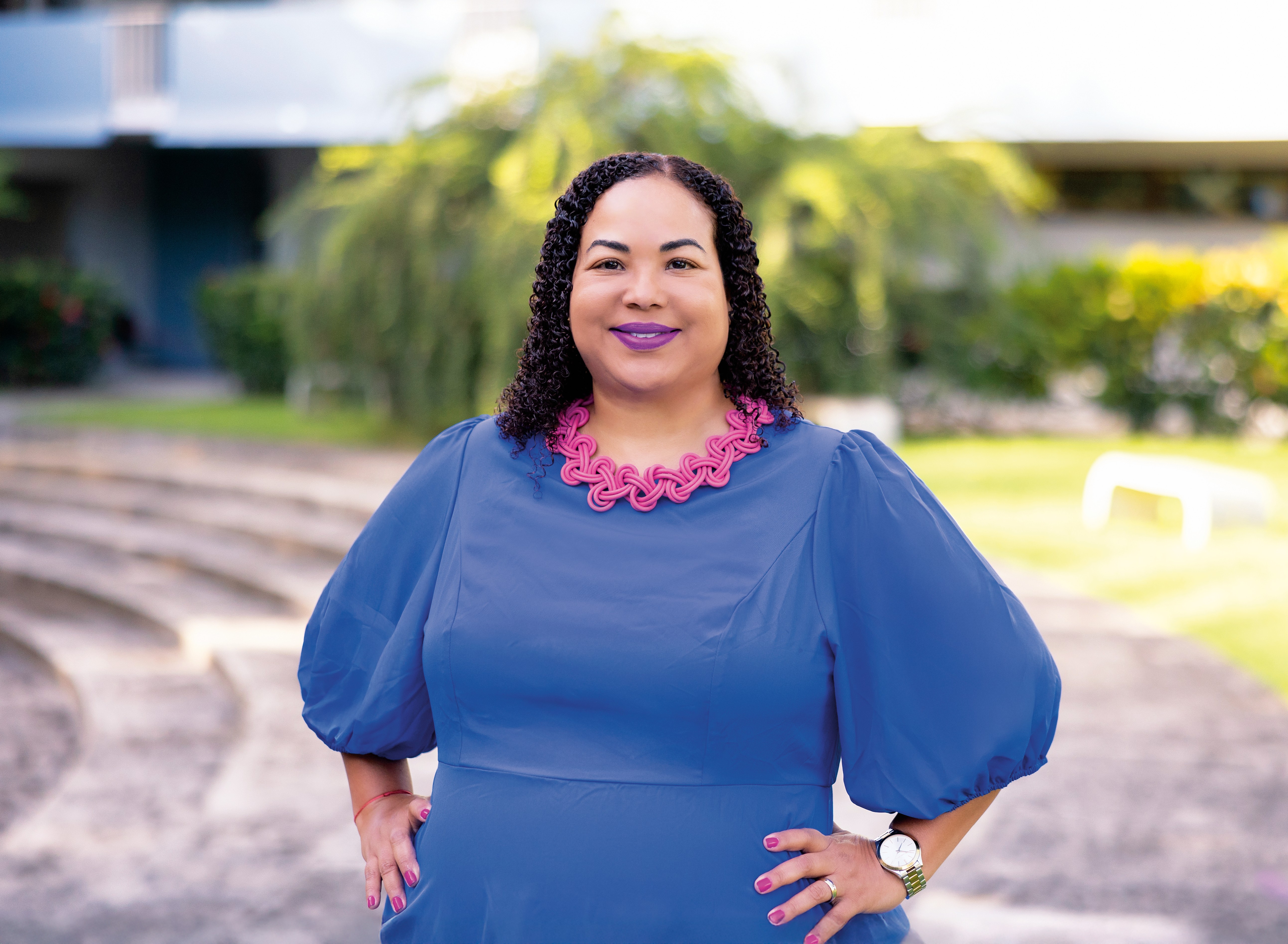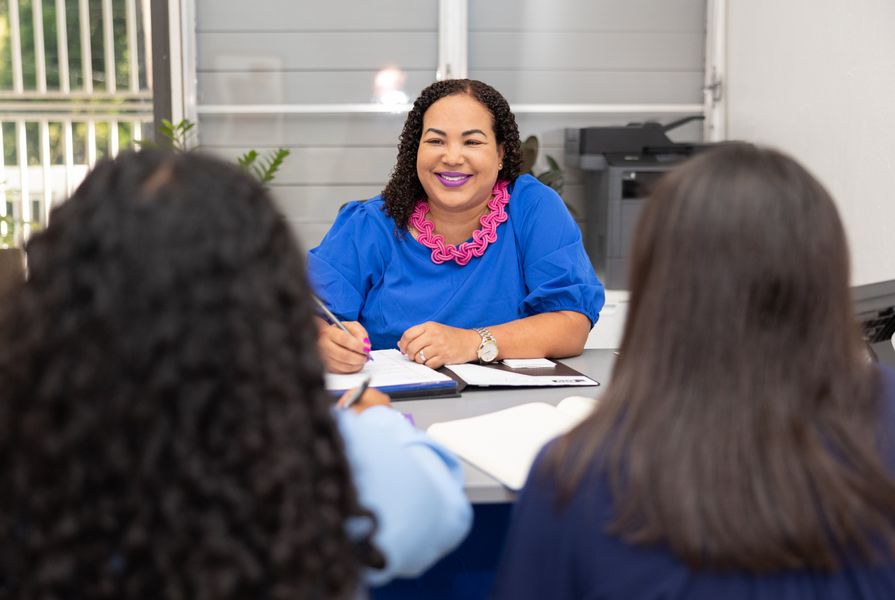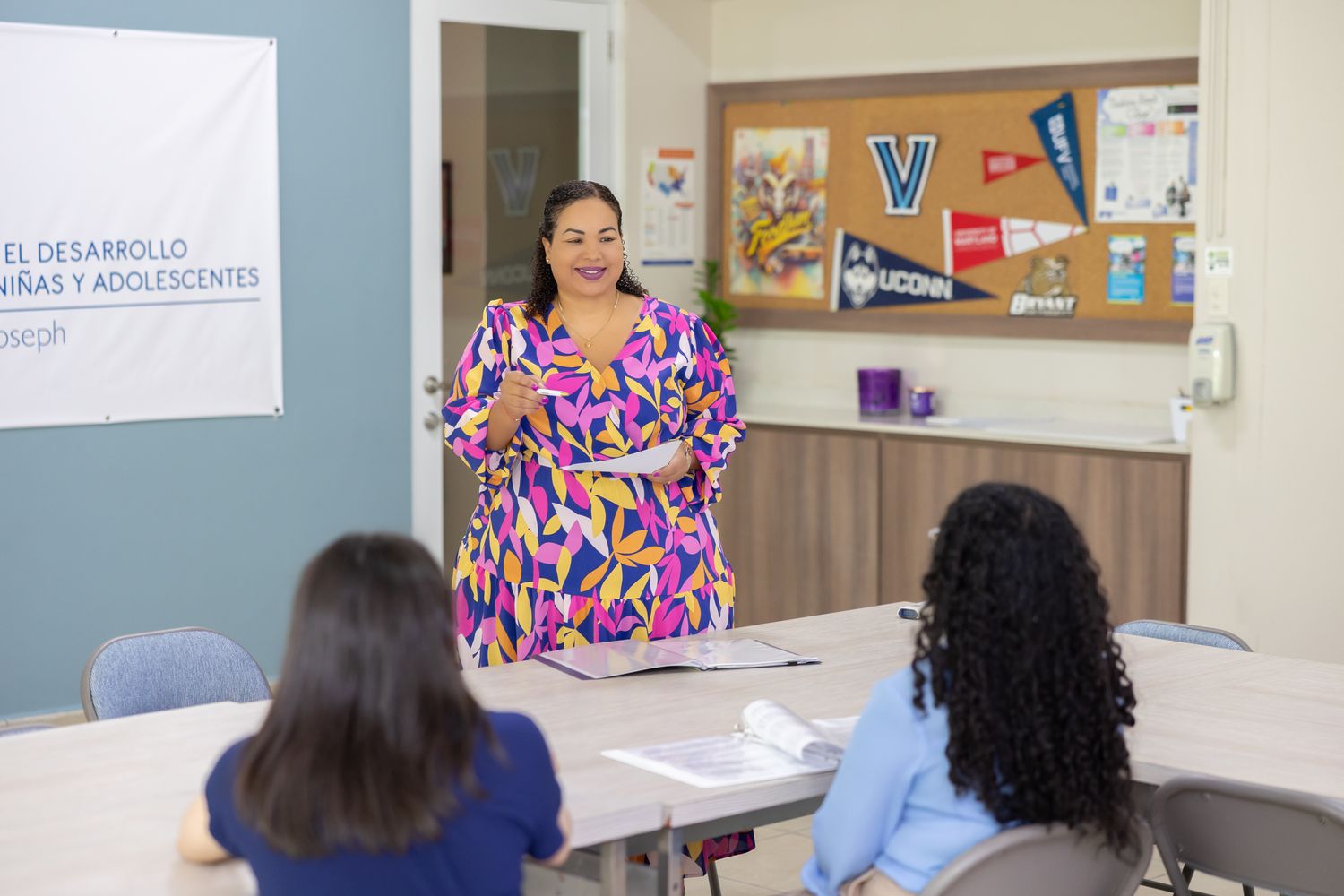A Champion for Adolescent Mental Health

A Champion for Adolescent Mental Health
Clinical psychologist Yadira Sánchez (’91) is committed to improving social-emotional learning for adolescent girls in Puerto Rico
Yadira Sánchez graduated from high school at 15 and earned a bachelor’s from BU Wheelock at 19. By
21, she had a master’s in clinical psychology. That drive has continued to define her career.
“I’m very task-driven, so when I start something, it’s with a goal in mind,” says Sánchez (’91). “And once it’s achieved—OK, what’s the next challenge?”
I’m very task driven, so when I start something, it’s with a goal in mind. And once achieved—okay, what’s the next challenge?
Her résumé includes roles at Head Start, all-boys and all-girls schools, Puerto Rico’s department of housing, Duquesne University, a children’s book publisher, and the US District Court of Puerto Rico, where she spent two years as a probation officer for offenders in need of mental health services. “The connective thread is always social-emotional and mental health,” she says.
In late 2024, Sánchez became director of counseling, health, and wellness at Academia Maria Reina (AMR), a Catholic all-girls school in San Juan, Puerto Rico. Within months of taking the job, she had rolled out an ambitious plan to improve the mental health of the girls at her school—and throughout the community.
From reading development to mental health?

When Sánchez received the 2024 Lucy Wheelock Award, one of BU Wheelock’s top alumni honors, she was wrapping up five years as executive director of Lectores para el futuro (“Readers of the Future”). She grew the nonprofit, which aims to help students with reading difficulties and certify teachers in evidence-based reading instruction, from a staff of 5 to 21.
One challenge that Sánchez addressed was that much of the research on dyslexia and reading available in Puerto Rico was in English—and inaccessible to the people who needed it most. “The teachers from the public school system don’t all understand English to that level,” she says. Sánchez built relationships with scholars in Argentina, Spain, and the Dominican Republic whose research is available in Spanish. Only when she was satisfied that the organization was well-positioned for the future was Sánchez willing to accept her current role at AMR.
Children and adolescents in Puerto Rico, like many around the globe, are under more stress than ever. Social media has changed how kids everywhere interact with the world. In 2017, the children of Puerto Rico faced the devastation of Hurricane Maria. A student in 11th grade today would have been about eight years old when Maria struck the island, destroying the power grid and leaving much of the population without electricity for months. That child would have spent much of sixth and seventh grade learning online because of COVID-19. That student would have arrived in high school without the social and interpersonal skill development that previous generations took for granted.
“They don’t know how to talk to an adult,” says Sánchez. “Study skills and self-regulation are really hard for them. They get anxious. They stop listening. When the teacher asks them a question, they can’t answer because they’re physically there, but mentally they are not.”
A holistic approach

Sánchez has a long history with AMR. She spent seven years as the school’s psychologist earlier in her career. Her daughters are alumni. When the principal decided to enhance the school’s counseling program following the pandemic, Sánchez was a natural source of advice and was asked to apply for the position of director of counseling and mental health services. Within months, they were planning an ambitious initiative: Centro para el Desarrollo Integral de Niñas y Adolescentes (CDINA, the Center for the Integral Development of Girls and Adolescents).
The goal for the center, which is located in a house adjacent to campus, is to focus on the importance of social-emotional learning—and, in turn, academic performance—with a holistic approach that includes programs for students, professional development for teachers and staff, and workshops for parents. It’s an approach that Sánchez says few schools—and none in Puerto Rico—have attempted. She hopes that CDINA’s impact can stretch well beyond AMR and plans to invite staff and parents from other schools to events.
One of the center’s first programs was offering first aid in mental health training for mental health crises. Every teacher at AMR will eventually be trained to identify and respond to mental health situations in the absence of a school counselor, the same way a school would require teachers to know CPR. Sánchez recounts a recent incident, when a teacher found a girl experiencing a panic attack in a school bathroom. She helped the student deescalate and calm her breathing before taking her to the infirmary for more help. The teacher told Sánchez that she knew what to do because of that training. The center has also offered activities like art therapy, scheduled visits from therapy dogs, and set up well-being spaces throughout the school.
The center’s comprehensive approach, Sánchez hopes, will improve the school’s culture as well as its educational outcomes. “If you come to school happy, you learn better,” she says. And the impact of good mental health extends well beyond the classroom. “The better your mental health is, the better you’ll navigate the world.”
Comments & Discussion
Boston University moderates comments to facilitate an informed, substantive, civil conversation. Abusive, profane, self-promotional, misleading, incoherent or off-topic comments will be rejected. Moderators are staffed during regular business hours (EST) and can only accept comments written in English. Statistics or facts must include a citation or a link to the citation.